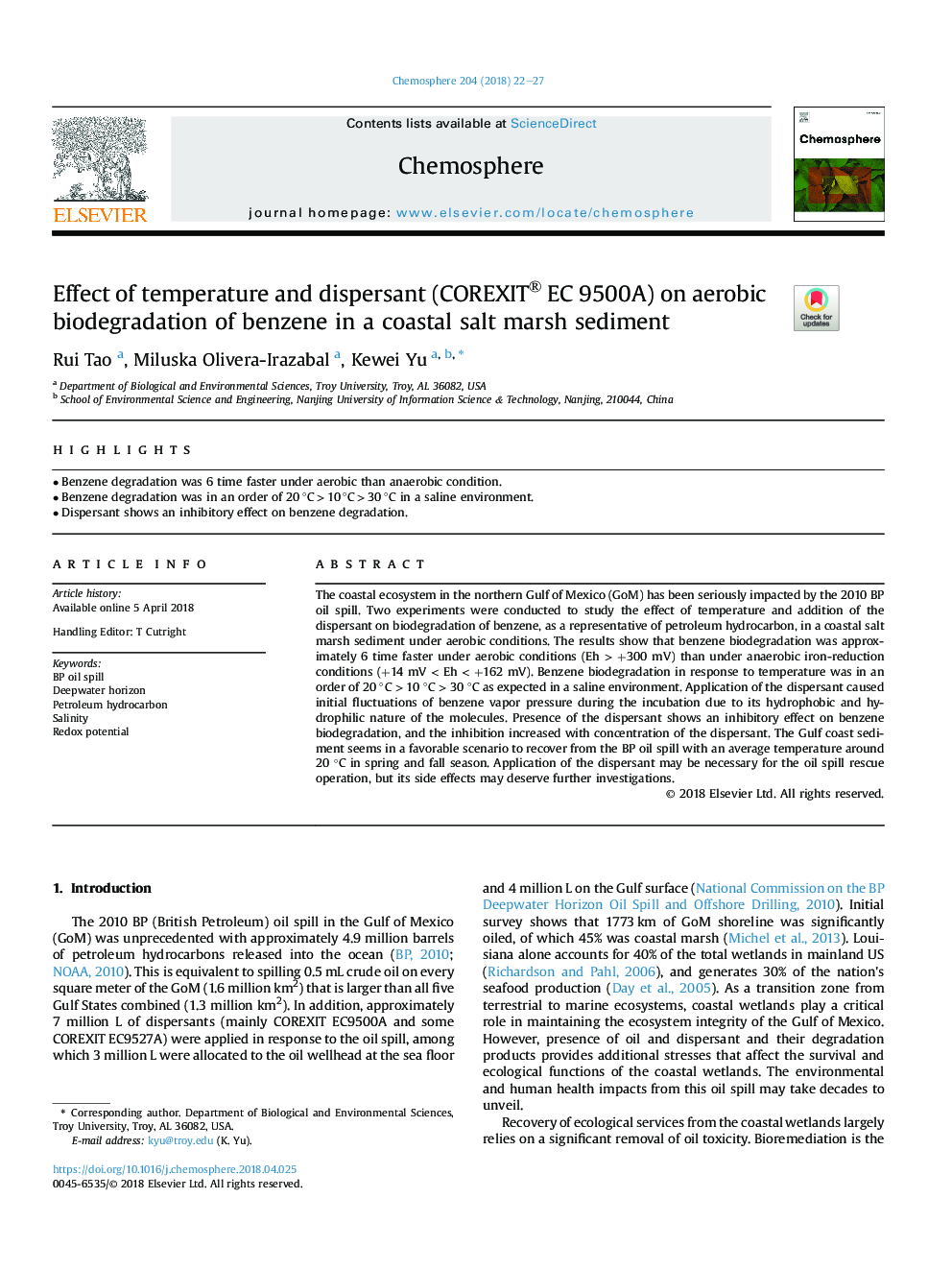| Article ID | Journal | Published Year | Pages | File Type |
|---|---|---|---|---|
| 8851194 | Chemosphere | 2018 | 6 Pages |
Abstract
The coastal ecosystem in the northern Gulf of Mexico (GoM) has been seriously impacted by the 2010 BP oil spill. Two experiments were conducted to study the effect of temperature and addition of the dispersant on biodegradation of benzene, as a representative of petroleum hydrocarbon, in a coastal salt marsh sediment under aerobic conditions. The results show that benzene biodegradation was approximately 6 time faster under aerobic conditions (Eh > +300 mV) than under anaerobic iron-reduction conditions (+14 mV < Eh < +162 mV). Benzene biodegradation in response to temperature was in an order of 20 °C > 10 °C > 30 °C as expected in a saline environment. Application of the dispersant caused initial fluctuations of benzene vapor pressure during the incubation due to its hydrophobic and hydrophilic nature of the molecules. Presence of the dispersant shows an inhibitory effect on benzene biodegradation, and the inhibition increased with concentration of the dispersant. The Gulf coast sediment seems in a favorable scenario to recover from the BP oil spill with an average temperature around 20 °C in spring and fall season. Application of the dispersant may be necessary for the oil spill rescue operation, but its side effects may deserve further investigations.
Related Topics
Life Sciences
Environmental Science
Environmental Chemistry
Authors
Rui Tao, Miluska Olivera-Irazabal, Kewei Yu,
